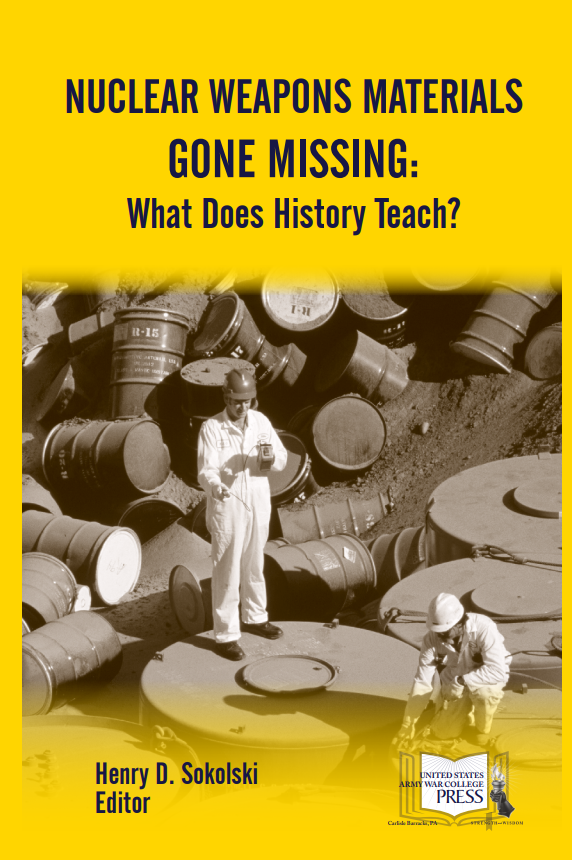 Author: Mr Henry D Sokolski
Author: Mr Henry D Sokolski
View the Executive Summary
In 2009, President Obama spotlighted nuclear terrorism as one of the top threats to international security, launching an international effort to identify, secure, and dispose of global stocks of weapons-usable nuclear materials—namely highly enriched uranium and weapons-grade plutonium. Since that time, three nuclear security summits have been held, along with scores of studies and workshops (official and unofficial), drawing sustained high-level attention to the threat posed by these materials. However, little attention has been given to incidences where sensitive nuclear materials actually went missing. This volume seeks to correct this deficiency, examining incidences of material unaccounted for (MUF) arising from the U.S. and South African nuclear weapons programs, plutonium gone missing from Japanese and British civilian production facilities, and a theft of highly enriched uranium from a U.S. military contractor in the 1960s that was used to help fuel Israel’s nuclear weapons program. This volume also questions the likelihood that the International Atomic Energy Agency would be able to detect diversions of fissile materials, whether large or small, and the likelihood that a state could or would do anything about the diversion if it was detected. What emerges from this book is an assessment of how likely we are to be able to account for past MUF quantities or to be able to prevent future ones.